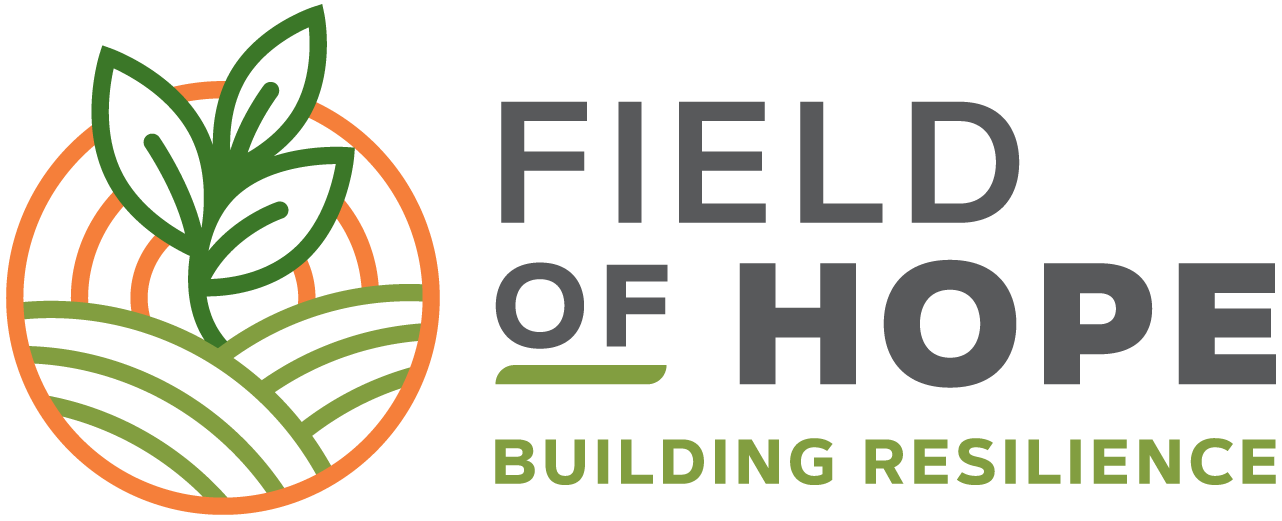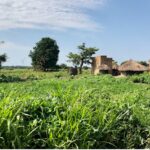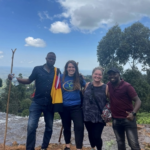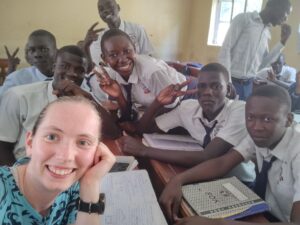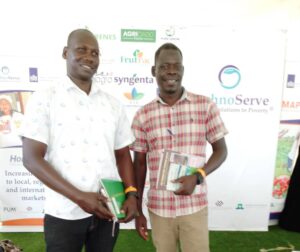A Strong Vision: Empowering Agricultural Educators
 Every year, Field of Hope brings together agriculture teachers from all over Uganda to train them on how best to teach agriculture to students, using FOH curriculum and materials. I have never been to any of such trainings, and I was particularly happy to see and be part of this vision of empowerment. It is no surprise that agriculture is the backbone of the Ugandan economy. It plays a critical role in the economy of Uganda, and it is an important driving factor for economic growth, poverty reduction and food security. Unfortunately, pursuing agriculture is not a lifetime career for most young Ugandans, and varying perceptions of how non-lucrative the sector is, has impacted their interests in agriculture. It is to this view that Field of Hope is dedicated to agricultural development and education among youths and agricultural educators.
Every year, Field of Hope brings together agriculture teachers from all over Uganda to train them on how best to teach agriculture to students, using FOH curriculum and materials. I have never been to any of such trainings, and I was particularly happy to see and be part of this vision of empowerment. It is no surprise that agriculture is the backbone of the Ugandan economy. It plays a critical role in the economy of Uganda, and it is an important driving factor for economic growth, poverty reduction and food security. Unfortunately, pursuing agriculture is not a lifetime career for most young Ugandans, and varying perceptions of how non-lucrative the sector is, has impacted their interests in agriculture. It is to this view that Field of Hope is dedicated to agricultural development and education among youths and agricultural educators.
This year’s Southern teacher training in Kampala commenced with a bang – particularly because it rained so heavily on the first day, but that did not stop the participants from coming. Our team was so inspired when we saw teachers braving the heavy rain to come to our meeting room, and we knew that we were in for a time of impact.
that did not stop the participants from coming. Our team was so inspired when we saw teachers braving the heavy rain to come to our meeting room, and we knew that we were in for a time of impact.
The training spanned for over three days with facilitators imparting new classroom techniques to increase the interest of teachers as well as students in experiential learning. Some things particularly noteworthy from the training were the classroom management strategies that were taught. One of the management strategies involved engaging positive reinforcements to not only encourage students to participate in class but increase their confidence and self-esteem. In one of the group discussions, some of the teachers pointed out that they understood that their roles as teachers transcended teaching agriculture as a subject, but also, that they had been given an incredible opportunity to invest in the lives of the students which will in turn have a ripple effect on the society.
 The teacher training was also a time to rekindle old friendships and foster new ones. The interactive group sessions encouraged teachers to share individual knowledge about urban gardening and agricultural best practices that were successful in their schools. It felt like a community of changed and empowered individuals who were passionate about improving themselves, the experiences of their students, their communities, and their country. The impact of this year’s teachers training might not be quantifiable or immediate, but this is an investment that will have a domino effect for years to come.
The teacher training was also a time to rekindle old friendships and foster new ones. The interactive group sessions encouraged teachers to share individual knowledge about urban gardening and agricultural best practices that were successful in their schools. It felt like a community of changed and empowered individuals who were passionate about improving themselves, the experiences of their students, their communities, and their country. The impact of this year’s teachers training might not be quantifiable or immediate, but this is an investment that will have a domino effect for years to come.
What a vision! What an impact! What an organization! To enable us to do more impactful work like this in the future, please donate.
Oluwabukola Makinde
Fellow ‘22
